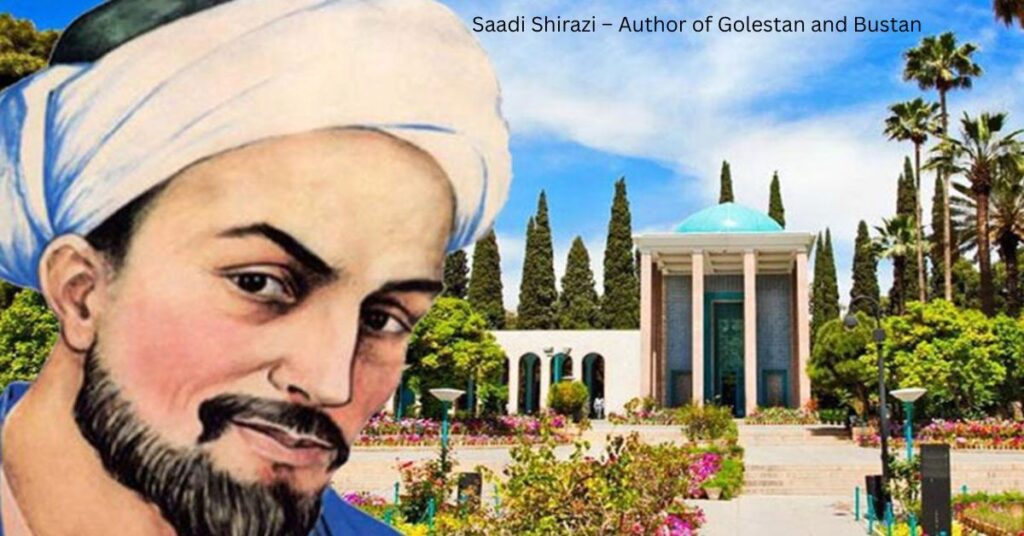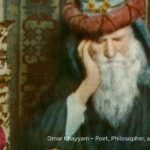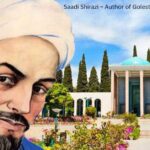Saadi Shirazi, widely known as one of the greatest Persian poets and prose writers, has left an indelible mark on world literature through his profound wisdom and elegant style. Born in Shiraz, Iran, around 1210 CE, Saadi’s literary genius continues to inspire readers centuries later. His masterpieces, Golestan (The Rose Garden) and Bustan (The Orchard), are celebrated for their timeless moral guidance, poetic beauty, and deep insight into human nature.
Early Life and Education
Saadi was born in the city of Shiraz, a cultural hub in Persia renowned for its literary and intellectual environment. From an early age, he displayed a remarkable aptitude for learning and literature. He pursued formal education in classical Arabic and Persian literature, philosophy, and theology. Later, Saadi traveled extensively across the Islamic world, including regions such as Baghdad, Mecca, Syria, and North Africa. These journeys enriched his experiences and deeply influenced his writings, allowing him to weave worldly wisdom and humanist themes into his works.
Saadi’s Literary Contributions
Saadi’s literary legacy is unparalleled in Persian literature. His two seminal works, Bustan and Golestan, exemplify his mastery of prose and poetry while offering valuable lessons on morality, ethics, and social conduct.
Bustan (The Orchard)
Completed in 1257, Bustan is a collection of poems written entirely in verse. This work addresses moral and spiritual themes, including justice, humility, generosity, and love. Through stories and reflections, Saadi provides guidance on ethical behavior and the responsibilities of rulers and citizens alike. The poetic elegance of Bustan makes it not only a source of wisdom but also a literary masterpiece admired for its rhythmic beauty and profound imagery.
Golestan (The Rose Garden)
Written in 1258, Golestan is a blend of prose and poetry, often considered Saadi’s most influential work. It contains stories, aphorisms, and reflections that explore human virtues, social interactions, and practical wisdom. Unlike Bustan, Golestan emphasizes narrative storytelling, making its moral lessons more relatable and engaging. Famous for its memorable quotes and universal appeal, Golestan has been translated into numerous languages and remains widely read across the globe.
Philosophy and Themes
Saadi’s writings reflect a deep understanding of human nature, emphasizing compassion, humility, and ethical conduct. His philosophy advocates moderation, kindness, and empathy toward all people, regardless of social status, religion, or ethnicity. By combining moral instruction with literary artistry, Saadi’s works bridge the gap between intellectual insight and emotional resonance.
Key themes in Saadi’s works include:
- Humanism: A recognition of shared humanity and the importance of empathy.
- Ethics and Morality: Practical advice for personal conduct and social responsibility.
- Wisdom through Experience: Lessons learned from travel, observation, and human interactions.
- Spirituality: Reflection on divine justice and ethical living in accordance with moral principles.
Legacy and Influence
Saadi Shirazi’s influence extends far beyond Persian literature. His works have inspired writers, philosophers, and thinkers across the Middle East, Europe, and Asia. Golestan and Bustan have been used as educational texts for centuries, admired for both literary elegance and moral instruction. Saadi’s famous lines, such as “Human beings are members of a whole, in creation of one essence and soul,” resonate universally and reflect his enduring legacy as a humanist thinker.
Today, Saadi is celebrated not only as a poet but as a timeless teacher whose writings offer guidance in navigating the complexities of human life. His tomb in Shiraz, known as Saadieh, remains a symbol of literary and spiritual heritage, attracting scholars and admirers from around the world.
Conclusion
Saadi Shirazi’s contributions to literature and philosophy remain invaluable. Through his masterpieces Golestan and Bustan, he combines poetic artistry with profound moral insight, creating works that continue to educate, inspire, and entertain readers worldwide. His legacy as a humanist, poet, and moral guide secures his place among the greatest literary figures of all time.




